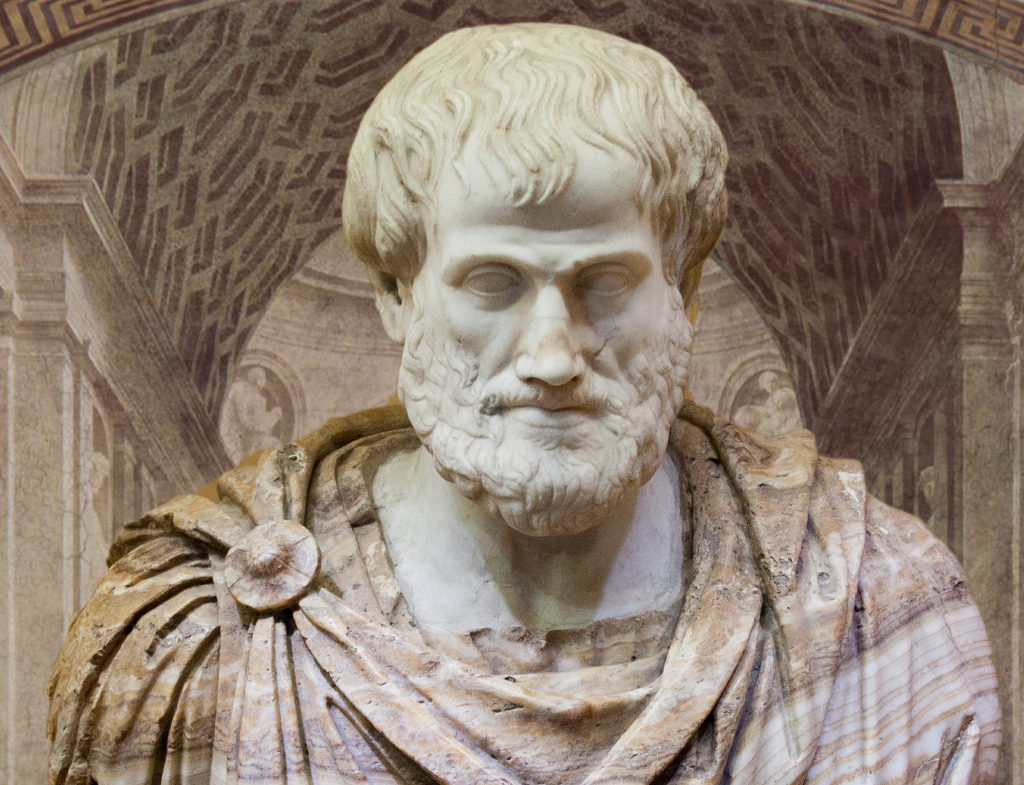The methods of persuasion includes Ethos.,Pathos.,Logos.,Telos.,Kairos.
Discover the 2,300-year-old secrets from the greatest marketer who ever lived. Here’s why your “out with the old, and in with the new” reasoning is not convincing your customers.

Aristotle
Greek philosopher
Born: June 19, 384 BC, Stagira, Greece
Died: March 7, 322 BC, Chalcis, Greece
Aristotle, the ancient Greek philosopher was not only one of the greatest intellectual figures of Western history, he was in many ways, the father of marketing. Most people are aware of his methods of persuasion — ethos, pathos, and logos — but there are lesser known methods of persuasion to include in the mix. Telos and Kairos are appeals that marketers would benefit in knowing, in order to persuade customers to buy product.
In Aristotle’s day, persuasive speech was a form of rhetoric in which young men were taught to win legal cases — these case often involved disputes over land and property. These ancient rhetorical techniques have been used throughout the centuries, in one form or another, and have found their way into modern advertising and marketing strategies.
Let’s take a look at Aristotle’s methods of persuasion and discover the ancient marketing secrets behind successful modern brands!
Ethos

The appeal to credibility. Ethos today can be found in many celebrity endorsed products and services. People by nature emulate those they admire and covet, so it is only natural that those same people will try to purchase the very items owned by celebrities.
Pathos

The appeal to emotion. Pathos is a powerful technique used by many charities and companies. Pulling at the ole’ heartstrings of your audience is sure to empty the wallets of your customers, if it is done correctly.
Logos

The appeal to logic. No one makes a better appeal to its customer’s logic like Apple, Inc. Each year they convince their customer’s to purchase new products using logic and reason. The logical appeal cites facts, statistics, charts, data, and graphs.
Telos

The appeal to purpose. Religious, spiritual centers, self-help organization and even the NASA, all make appeals to the audience’s sense of purpose. Believe, tithe, and convert more “tithers” is the purpose of the religious, spiritist, and the self-helpers. NASA wants you to believe our purpose is to colonize Mars and appeals to our sense of doom for our species if we don’t.
Kairos

The appeal to timeliness. Marketing is about delivering the right promotion about the right product, at the right price, at the right place, at the right time, and to the right person—hence, the proverbial 4 P’s of marketing (product, price, place & promotion) are found in this statement. Kairos is a crucial component in this mix because it draws from the audience’s sense of anxiety and anticipation.
13 of the
Most Persuasive Ads
We’ve Ever Seen
Wrap-up
Persuasive philosophy from 2,300 years ago has generated trillions of dollars in our modern times. If your “out with the old, and in with the new” reasoning is not convincing your customers, then it would behoove you to read up on Aristotle’s rhetoric. Discover the 2,300-year-old secrets from the greatest marketer who ever lived, could help your business generate dollars through the methods of persuasion.
How do you make your marketing and advertising more persuasive? Let me know in the comments below…
Share via:


